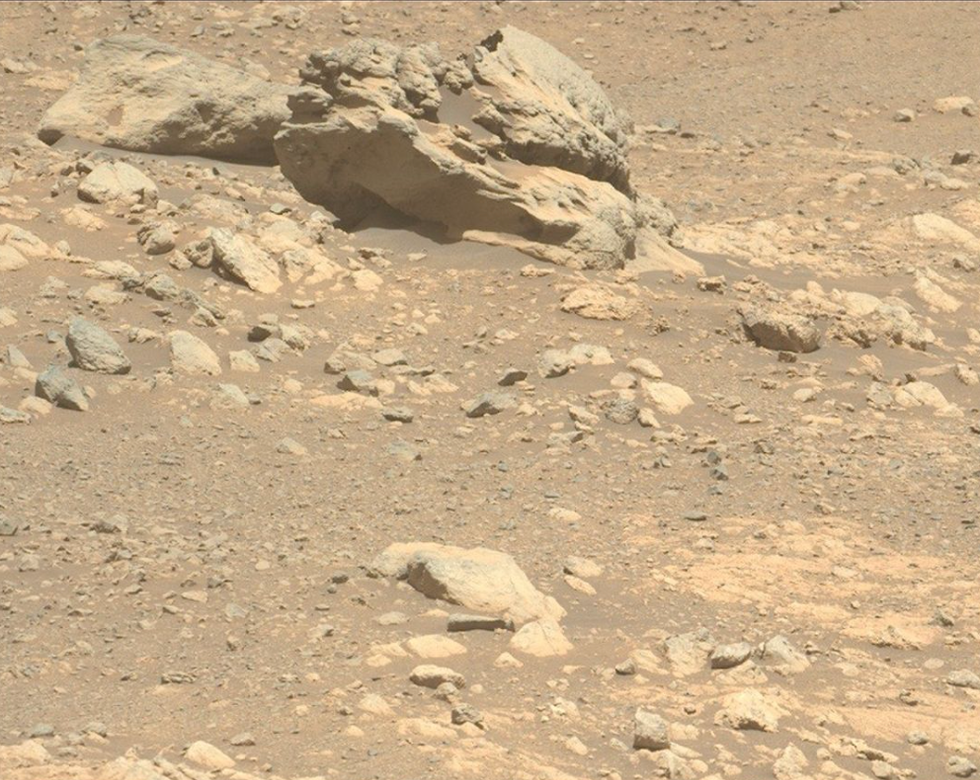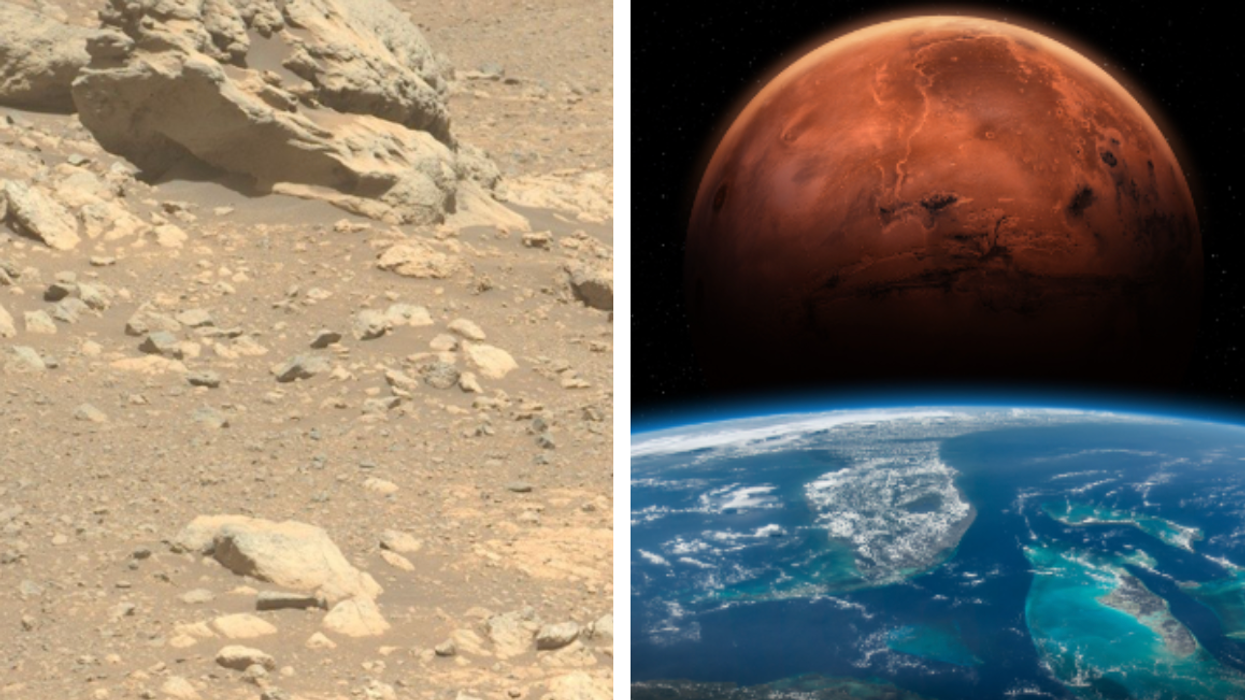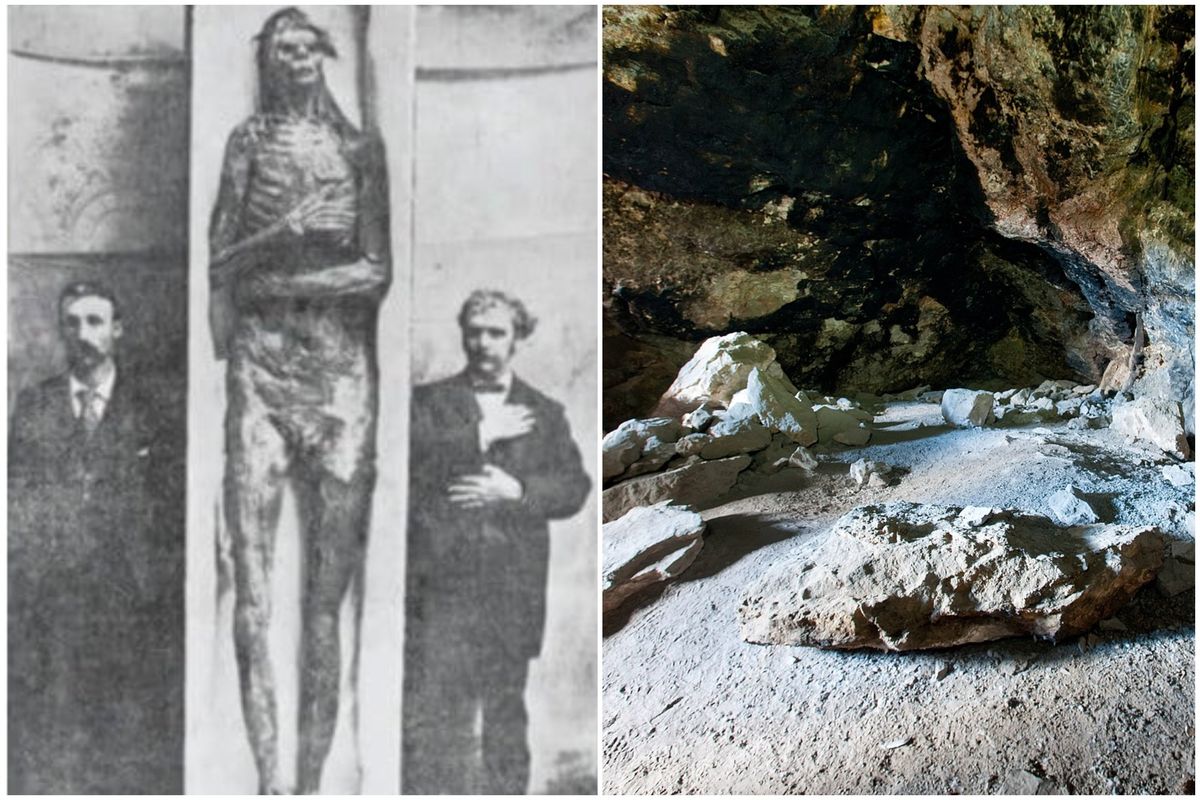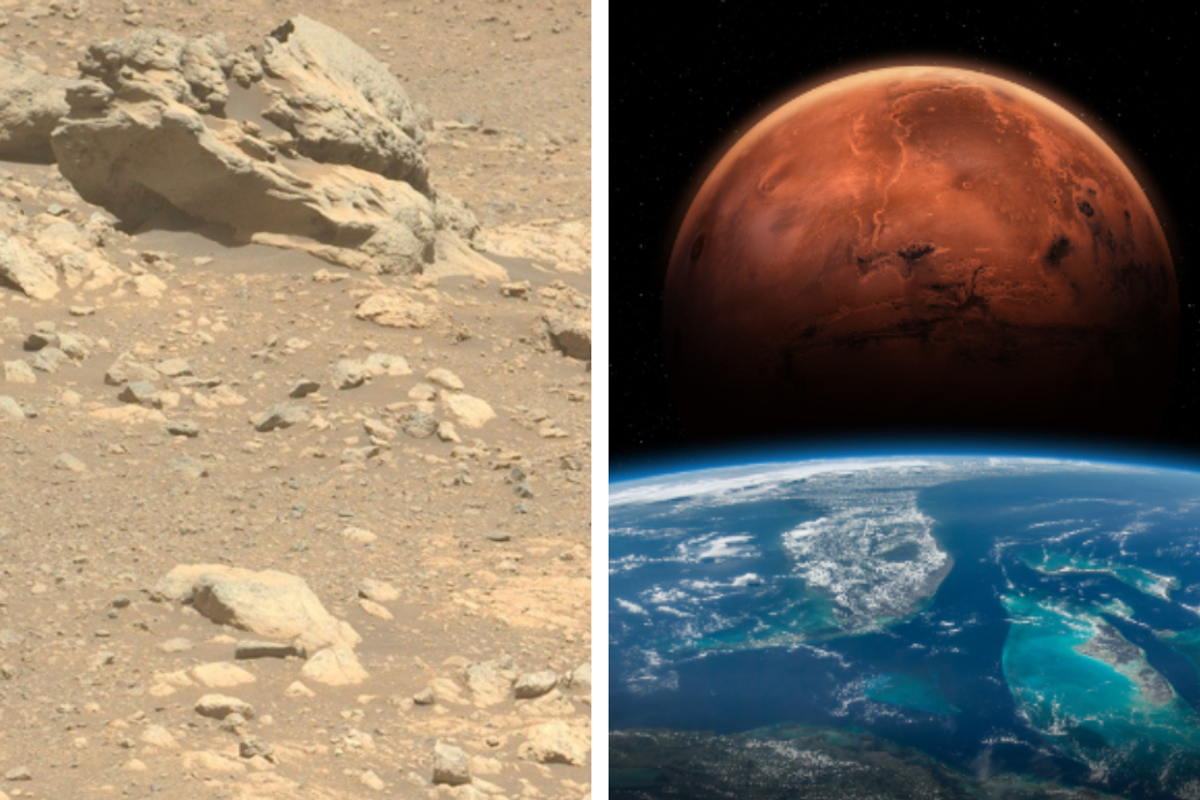Science & Tech
NASA/iStock
It's been five years since NASA's Perseverance rover touched down on Mars, sending back images and data that have revealed some of the red planet’s oddest and most peculiar features.
Now, the rover has stumbled across an unusually shaped rock about 80 centimetres across (about 31 inches) called "Phippsaksla."
Standing taller than the surrounding low-lying, fragmented rocks, Phippsaksla immediately caught the attention of experts. The rover’s SuperCam revealed that the rock is high in iron and nickel, making it even more intriguing.
Why? Because this combination is typically associated with iron-nickel meteorites formed in the cores of large asteroids, suggesting that this rock may have formed elsewhere in the solar system.

This isn’t the first time NASA has come across an out-of-place rock on Mars.
Back in 2014, the “Lebanon” meteorite was spotted by the Curiosity rover, a year after the “Cacao” meteorite was discovered — both composed of the same iron-nickel elements.
Even earlier, Mars Exploration Rovers Opportunity and Spirit found iron-nickel meteorites during their missions, adding to the growing collection of space rocks on the planet.
Speaking about the newly discovered Phippsaksla, NASA said the team needs to do more investigation "to confirm its status as a meteorite."
"But if this rock is deemed to be a meteorite, Perseverance can at long last add itself to the list of Mars rovers who have investigated the fragments of rocky visitors to Mars," they added.
You should also read...
- Kim Kardashian invited to join research team studying mysterious comet 3I/ATLAS ‘hurling toward Earth’
- A ‘gravity anomaly’ from 2007 may have impacted Earth in one unusual way
How to join the indy100's free WhatsApp channel
Sign up for our free Indy100 weekly newsletter
Have your say in our news democracy. Click the upvote icon at the top of the page to help raise this article through the indy100 rankings.
Top 100
The Conversation (0)














